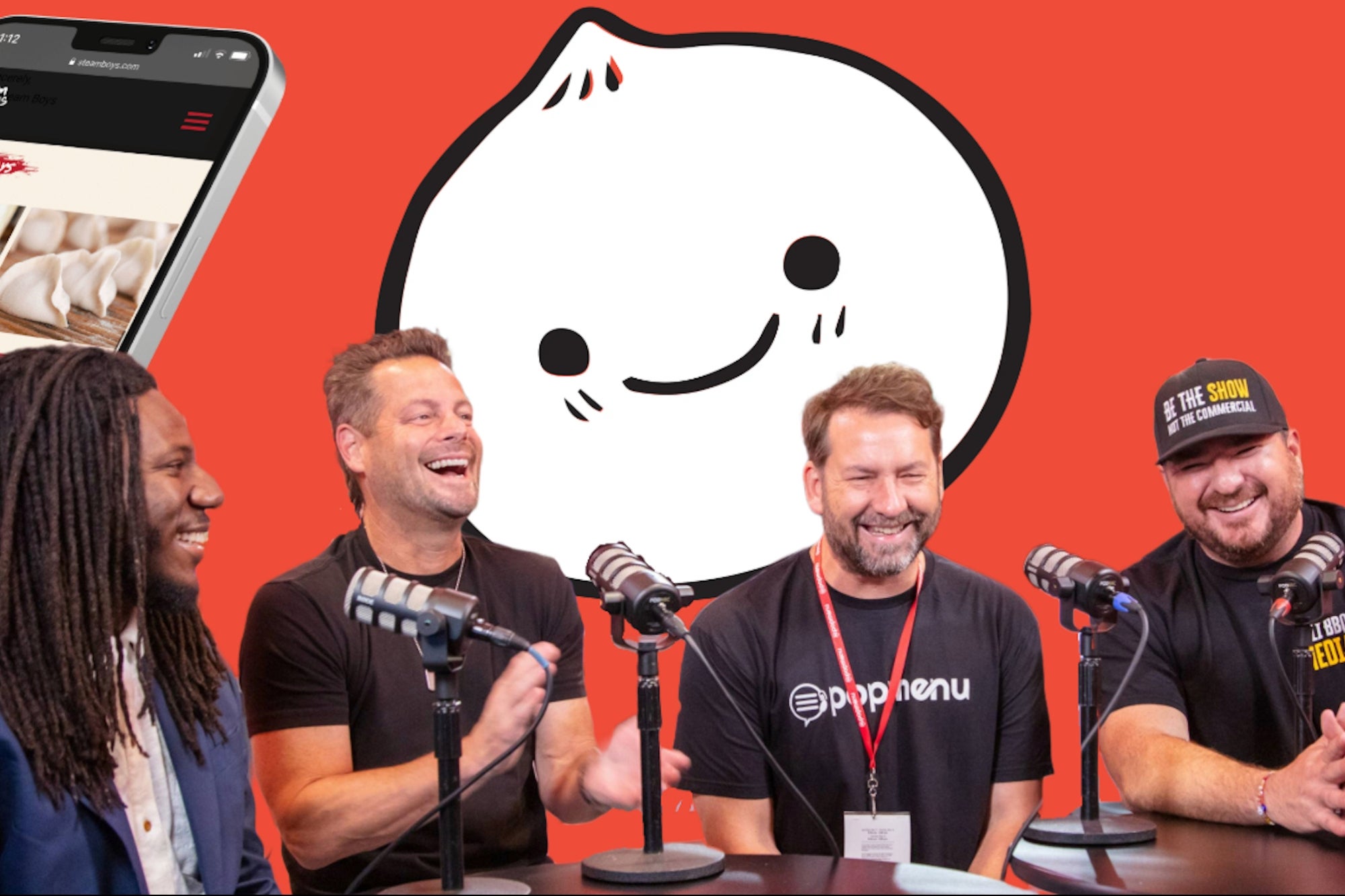Opinions expressed by Entrepreneur contributors are their own.
Tunji Junard lost a client — not to a rival agency, but to a software platform.
It stung. Junard had been running marketing for a restaurant when it dropped him in favor of a tech tool. But instead of brushing it off, he got curious. That decision changed the trajectory of his career and led to him co-founding Steam Boys, a fast-casual Chinese comfort food brand that grew from three to nine locations.
The tech? Popmenu.
Built by two founders who spent time inside dining rooms, not just behind laptops, Popmenu wasn’t flashy, but it worked. And Junard, once skeptical, became one of its strongest advocates.
Related: Jon Taffer Teamed Up With This $300 Million Franchise Company to Build Something Bigger Than Restaurants
Tech built by listening
Brendan Sweeney and Tony Roy didn’t just want to build restaurant tech. They wanted to build it with restaurant people.
As CEO and COO of Popmenu — and co-founders — that distinction shaped everything. From the beginning, Sweeney and Roy spent time inside dining rooms, not just behind laptops. They weren’t interested in software that looked good on a pitch deck but fell apart during a dinner rush. They wanted tools that solved real problems like clunky menu updates, disconnected marketing and the constant question: Is any of this actually working?
Sweeney brought a product background and a willingness to go deep with operators. Roy, who came from an operational mindset, brought energy and a travel schedule that could rival a touring musician’s. Toronto, Miami, Atlanta — wherever owners were talking, he was listening.
They built around a truth: Most operators are flying blind. So they created Popmenu, a platform that connects a restaurant’s website, menu and marketing through email, text, social media and AI-powered campaigns. Everything lives in one place and is tied to real results.
What fueled the company’s growth wasn’t just the product. It was proximity. Roy and Sweeney stayed close to the pain points. They listened, built and kept showing up.
“We’re not separate from our customers,” Roy tells Shawn Walchef of Cali BBQ Media. “We’re part of the same world.”
That mindset continues to shape the company. Employees get equity. Product managers attend trade shows. Feedback loops are real. And it’s resonating with operators across the country, though not always right away.
Related: How This Massive Food Company Turned Its Fleet of Trucks into Rolling Billboards — And the Lesson It Teaches About Brand-Building
Asking for help isn’t a weakness
Junard knows firsthand what it felt like to be dropped from doing a restaurant’s marketing in favor of Popmenu. “I took it personally,” he says. “But after a minute, I had to admit, I was curious.”
What he found was more than automation. It was a smarter, connected system that actually showed what worked.
That discovery stuck with him. So when Junard became chief marketing officer and co-founder of Steam Boys — a growing dumpling concept based in the Southeast — he brought Popmenu with him.
By the time Steam Boys opened its third location, Junard knew the team needed more clarity. That’s when they rolled out Popmenu. As the brand expanded to nine restaurants, he finally stopped guessing what was landing. He had real data to work with — down to the dollars.
“I used to be a good guesser,” he says. “Now I have the numbers.”
Popmenu gave him back time and confidence. Instead of worrying about every post, he could focus on the brand’s identity. What does Steam Boys sound like? What does it stand for? That’s what he wanted to scale.
As the company grew, so did the partnership. Junard began relying on Popmenu’s backend patterns — what the founders call a growth playbook. It outlined things like how big a guest database should be to support $3 million in revenue, or how often a restaurant should message its audience to avoid churn. It wasn’t dogma, but it was direction. And that direction changed how Junard thought about marketing.
The most telling part? Junard is now one of Popmenu’s biggest champions. And the founders who built it aren’t leading with hype. They’re leading with humility.
“Eventually,” Junard says, “I realized asking for help doesn’t make you look weak. It makes you faster.”
That’s the kind of mindset Popmenu was built to support, not by replacing people, but by giving them the space to focus on what matters: the food, the story and the guest.
Related: A Conversation About AI With Sam Altman Blew Their Minds — So They Wrote the Playbook for Businesses That Want to Use the Tech
About Restaurant Influencers
Restaurant Influencers is brought to you by Toast, the powerful restaurant point-of-sale and management system that helps restaurants improve operations, increase sales and create a better guest experience.
Toast — Powering Successful Restaurants. Learn more about Toast.
Join top CEOs, founders and operators at the Level Up conference to unlock strategies for scaling your business, boosting revenue and building sustainable success.
Tunji Junard lost a client — not to a rival agency, but to a software platform.
It stung. Junard had been running marketing for a restaurant when it dropped him in favor of a tech tool. But instead of brushing it off, he got curious. That decision changed the trajectory of his career and led to him co-founding Steam Boys, a fast-casual Chinese comfort food brand that grew from three to nine locations.
The tech? Popmenu.
The rest of this article is locked.
Join Entrepreneur+ today for access.








